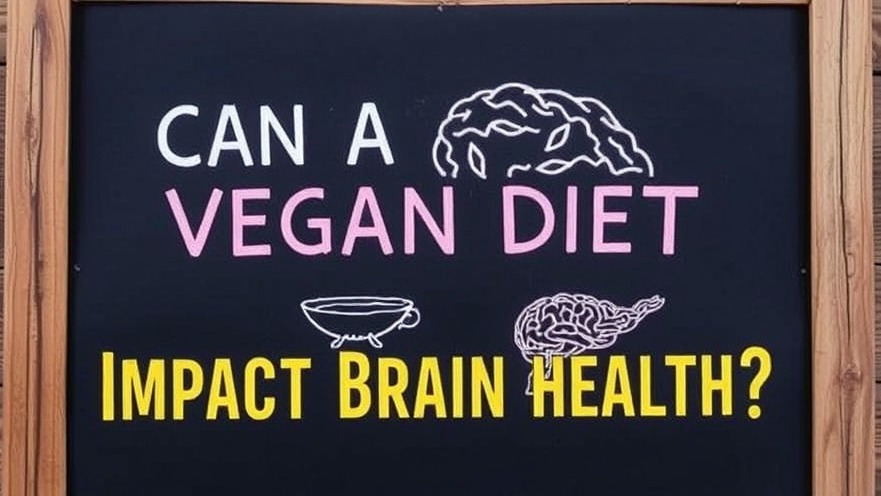
Is a Vegan Diet Hurting Your Brain Health?
Recently, there has been growing concern regarding the vegan diet and its potential impact on brain health. A recent podcast discussion brings to light compelling evidence that a strictly vegan diet may inadvertently increase the risk of neurological diseases. While the perception of veganism as a healthier lifestyle continues to thrive, emerging research highlights significant caveats that warrant serious consideration.
In 'Is a Vegan Diet Harming Your Brain?' DHA, Salt, Stroke & Dementia Science | Dr. Fuhrman," the discussion dives into the increasingly complex relationship between plant-based diets and neurological health, prompting deeper analysis on our part.
Understanding the Seventh-day Adventist Health Study
One pivotal study referenced in the podcast is the Seventh Day Adventist Health Study 2, which followed over 88,000 participants. This research revealed alarming statistics: vegans had a 17% increased risk of stroke, a 13% increased risk of dementia, and a staggering 37% greater risk of developing Parkinson's disease. These numbers, derived from a cohort with a generally healthy lifestyle, make it clear that being a vegan does not automatically equate to enhanced brain health.
The Power of Nutrients: DHA and Omega-3 Fatty Acids
A key nutrient identified in the conversation is DHA (docosahexaenoic acid), an omega-3 fatty acid that plays a vital role in brain function. The consensus among the experts suggests that a deficiency in DHA among vegans could be linked to the increased risk of neurological diseases. DHA is typically found in fish, so those following a strict vegan diet might miss out on these crucial fatty acids, potentially leading to reduced brain functionality and increased susceptibility to diseases like Alzheimer’s and Parkinson's.
The Dangers of Salt: A Hidden Culprit
Another vital aspect discussed in the podcast concerns salt consumption. Contrary to the popular belief that only high-fat diets contribute to strokes, it is suggested that excessive salt intake, often found in prepared vegan meals, might lead to cognitive decline, organ aging, and specifically increase the risk of hemorrhagic strokes among vegans. Hence, it’s essential that those consuming a vegan diet remain conscious of salt intake and avoid processed foods laden with sodium.
Rethinking Veganism: A Balanced Perspective
While the vegan diet is rich in fruits, vegetables, and antioxidants, this alone is not a guaranteed path to longevity or brain health. The discussion emphasizes adopting a more nuanced view: a diet rich in plant-based foods supplemented intelligently to fill nutrient gaps can offer greater health benefits. It’s about striking a balance and ensuring that necessary nutrients are adequately consumed either through natural sources or via supplements. Creatively, vegans might need to explore supplements for B12, zinc, and DHA to promote overall health.
Moving Forward: Personalize Your Nutrition
Given the variability in individual nutritional requirements and genetic differences in nutrient absorption, the experts recommend that vegans get regular blood tests to monitor nutrient levels. Personalizing nutrition can help identify deficiencies before they lead to significant health issues. Over the coming years, as research continues to evolve, it becomes increasingly critical that health advocates and nutritionists provide tailored advice to those embracing vegan lifestyles.
Conclusion: Health is Our Greatest Investment
The discussion in the podcast reflects a broader movement calling for a more balanced, informed approach to nutrition. To ensure our health spans more than our lifespans, we must be conscientious about the nutrition we consume. So, whether you’re fully vegan or simply looking to integrate more plant-based foods into your diet, prioritize diverse nutrients, avoid excess salt, and consider smart supplementation. After all, investing in our health today ensures a brighter tomorrow.
 Add Row
Add Row  Add
Add 




Write A Comment